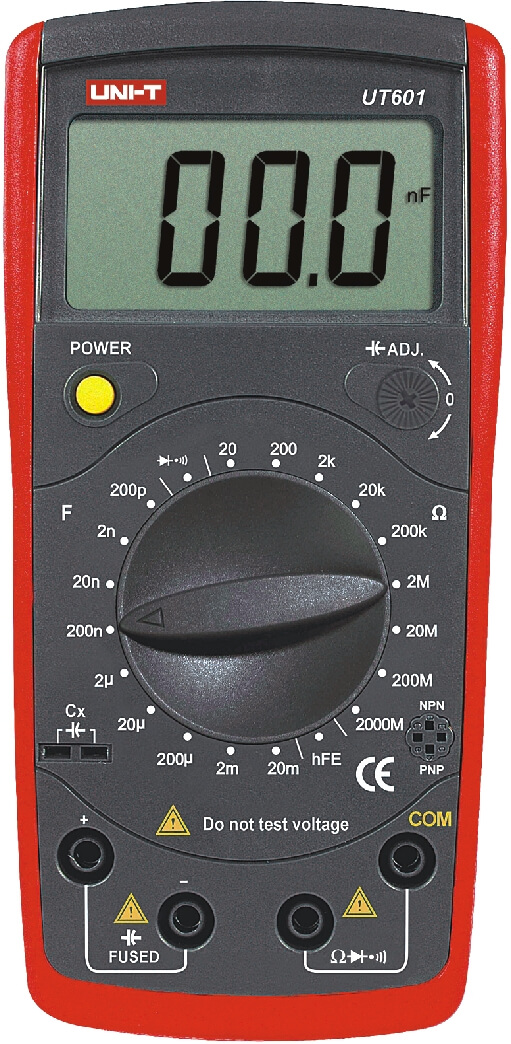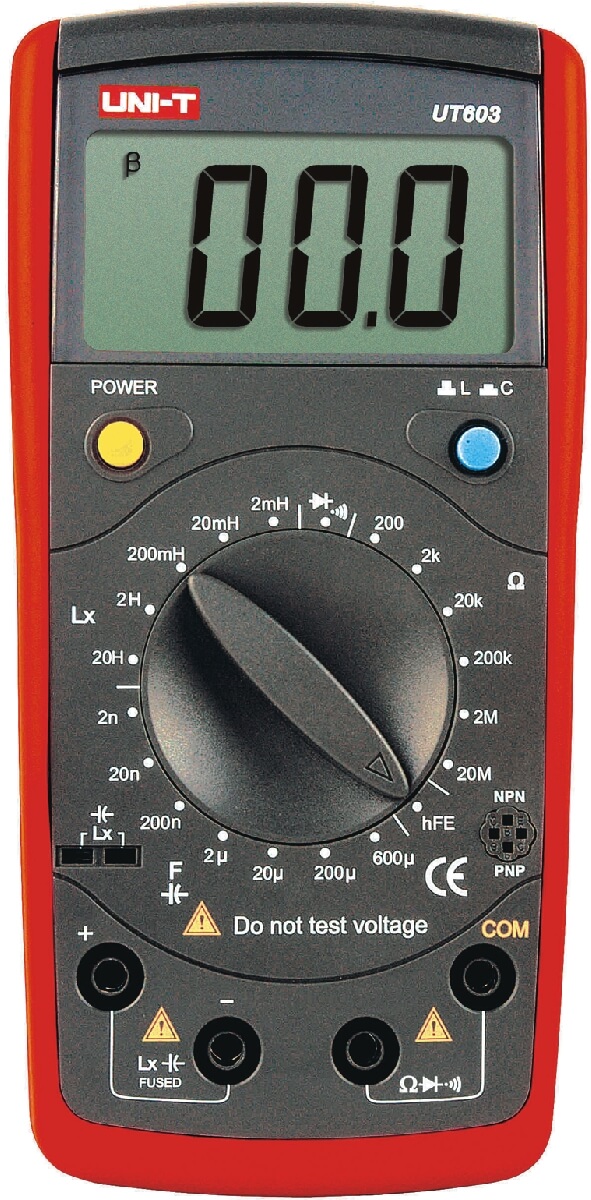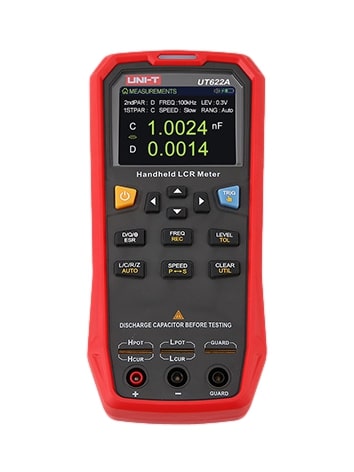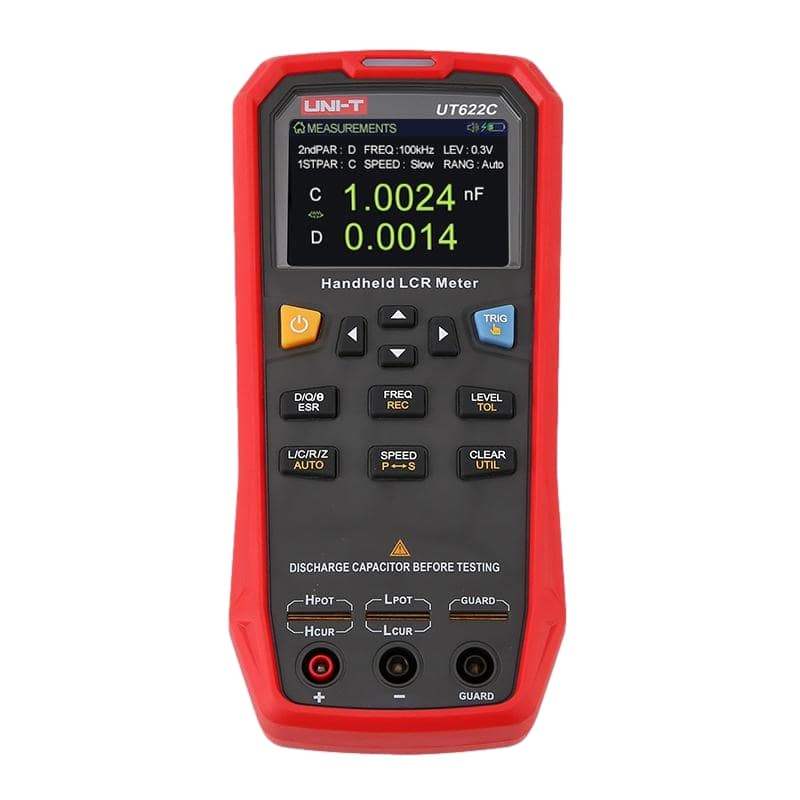Capacitance Meters
Capacitance Meters: Precision and versatility for your measuring tasks
What are capacitance meters
Capacitance meters are specialized instruments for measuring the electrical capacitance present in electrical circuits and components. These devices are indispensable in various technical and scientific fields as they help to assess the performance and efficiency of electrical systems. By precisely determining the capacitance, engineering decisions can be made on a sound basis and faults in circuits can be identified at an early stage.
Application areas and benefits of capacitance meters
Capacitance meters are used in a wide range of applications and industries. In the electronics and electrical industry, for example, they are essential for the quality control of components such as capacitors and other passive components. They also play a crucial role in research and development: scientists and engineers use them to test the features of new materials or innovative technical concepts.
In the field of renewable energies, capacitance meters help to monitor the efficiency of solar modules and batteries. This enables optimized energy generation and storage, which in turn contributes to sustainability. Overall, capacitance meters promote the reliability and performance of electrical systems and thus contribute to technological advancement.
Types of capacitance meters
There are different types of capacitance meters that can be selected depending on the intended use and accuracy requirements. Simple handheld capacitance meters offer a quick and uncomplicated way to determine capacitance values. They are particularly useful for technicians and engineers who need to take quick measurements on site.
For more demanding measurement tasks, benchtop devices are the ideal choice. These offer greater accuracy and have advanced functions such as the ability to save and analyze measurement data. Laboratory measuring devices, which are specially designed for use in research and development laboratories, enable even more precise measurements and more comprehensive analyses.
Technological features and innovations
Modern capacitance meters are characterized by a variety of technological features that improve their performance and ease of use. High-precision measuring sensors ensure that even the smallest capacitance values can be reliably recorded. In addition, many devices offer digital interfaces that enable simple data transfer and processing.
Innovative devices are also often equipped with user-friendly interfaces that enable intuitive operation. These can also have touchscreens and graphical displays that make it easier to interpret the measurement results. Such features help to ensure that both experienced professionals and less trained users can achieve optimal results.
Criteria for choosing the right capacitance meter
When selecting a capacitance meter, you should consider several factors to ensure that the device meets your specific requirements. One decisive criterion is accuracy: the more precise the measurements, the more reliable the results. The measuring range covered by the device is also important, especially if you are working with different capacities.
Operability also plays a major role. A user-friendly design and clear instructions make handling easier and contribute to the efficiency of your work. Other important aspects are the robustness and durability of the device so that it works reliably even under demanding conditions. Finally, compatibility with other measuring and analysis instruments can be a decisive advantage when working in complex systems.
Care and maintenance of capacitance meters
Regular care and maintenance are crucial to ensure the accuracy and longevity of your capacitance meter. Clean the device regularly to remove dirt and dust that could affect the sensors. Use suitable cleaning agents and cloths to avoid damage.
Check the calibration of the device regularly. Correct calibration is essential to obtain precise measurement results. Many manufacturers offer calibration services, which you should take advantage of at regular intervals. Finally, you should always store the device in a suitable protective cover or in the case provided to protect it from mechanical and environmental influences.
Conclusion: The importance of capacitance meters
Capacitance meters are indispensable tools for a wide range of applications. Their precision and versatility make it possible to accurately evaluate and optimize the performance of electrical systems. From quality control in industry to research and development and the monitoring of renewable energies, they make a significant contribution to innovation and increasing efficiency.
With careful selection, care and regular maintenance of capacitance meters, you can ensure that they always deliver optimal results and support you with your technical challenges. Rely on quality and reliability to achieve the best results for your projects.




